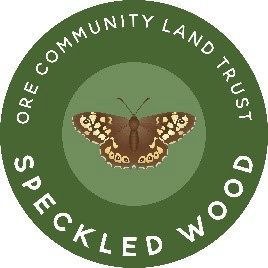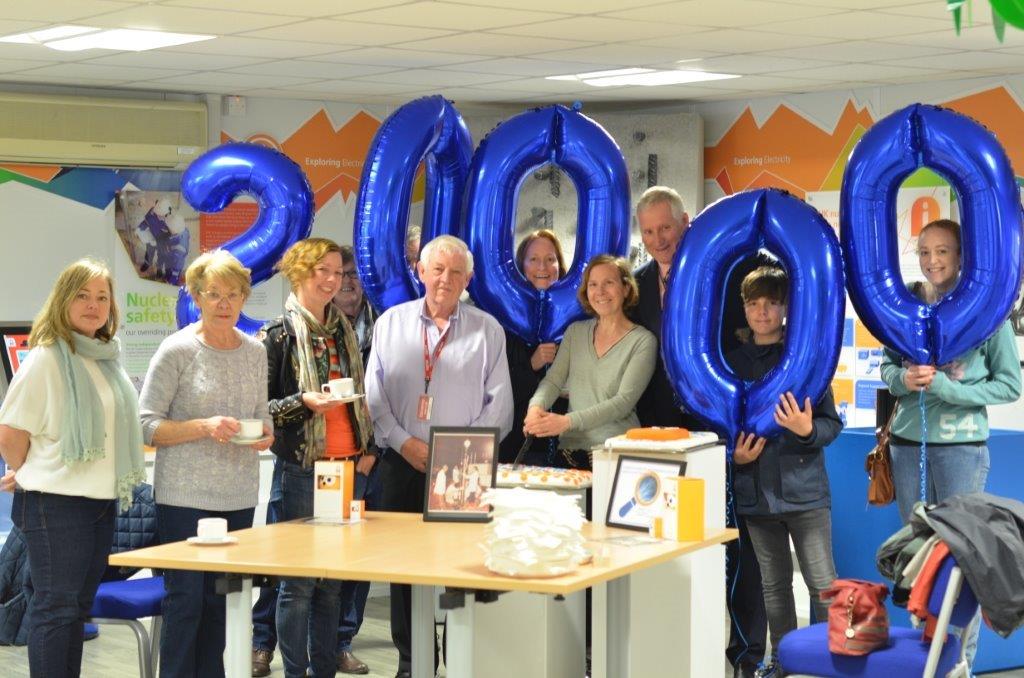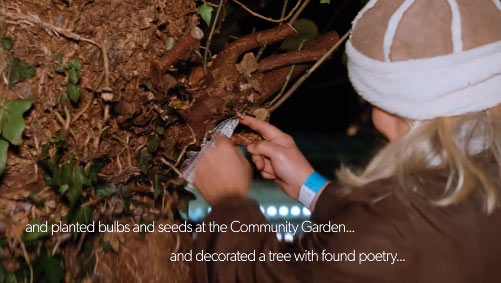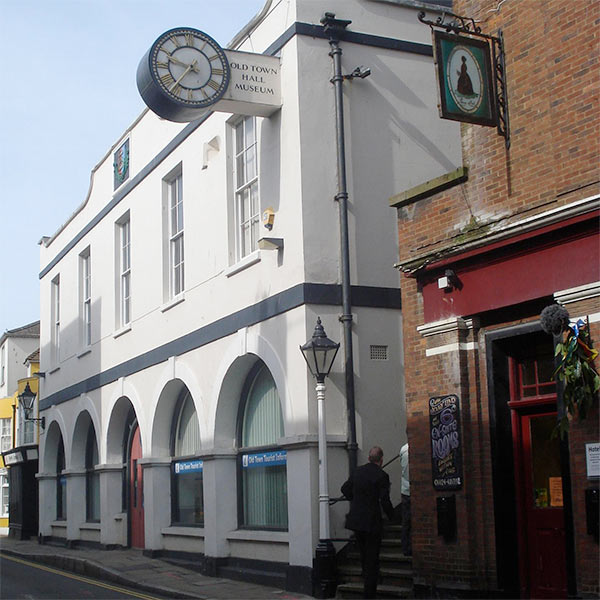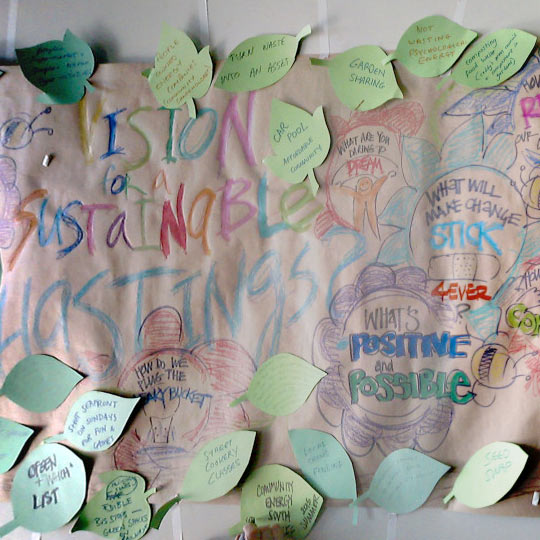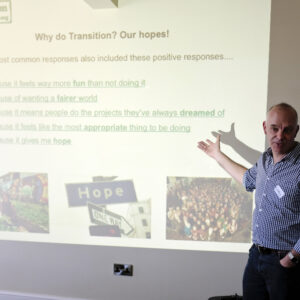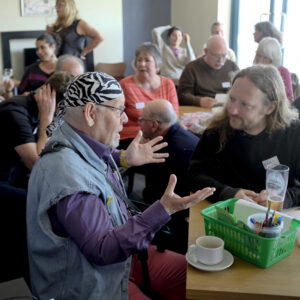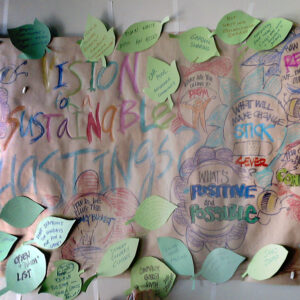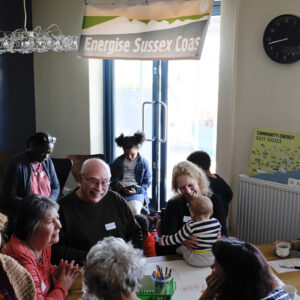By Linda Jeal
Given the increasing concern that there is internationally about our access to energy and the environmental impact of certain raw materials, it was with great interest that a group from Transition Town Hastings visited Dungeness B Power Station run by EDF on 19th May. EDF operates two types of reactors in the UK. One type is Pressurised Water Reactor, the other, such as Dungeness B & most of the UK reactors, are Advanced Gas – cooled reactors. It is sited next to Dungeness A, which is in the process of being decommissioned. Spent fuel rods are transported by rail to Sellafield for storage.
Security was reassuringly rigorous, both before we were accepted on the tour and during our time going around the plant, including the opportunity to meet armed specialist police assigned to the facility. Health and Safety requirements were also strictly adhered to and great care was taken to ensure our safety as we toured around. We were also treated to a celebratory cake as Alison, who organised the trip was the 20,000 visitor.
The Interactive Visitor’s Centre, where we initially met, was very informative. The session was started with a talk, supported by a power point adapted from the Eco Schools website, to highlight the need for the efficient use of resources in all areas of life including the need to “reuse/recycle” and save water and energy resources by using these effectively. There was an explanation of the production of nuclear energy and the running of a plant. There was also a section where the environmental impact, land resources needed and CO2 footprint of a range of energy sources including renewables were compared. The main message was that in the UK, in our particular circumstances, that a mixture of methods both renewable and nuclear was the most beneficial. There is not, however, a clear solution at present to the problem of the final storage of all levels of nuclear waste. (it is possible to find very informative presentations about all these issues on the Eco Schools website)
During the tour we received a very informative presentation regarding the production of nuclear energy and questions were answered, as far as we could judge, thoroughly and honestly.
After the tour, the opinion was that we could thoroughly recommend taking the opportunity to tour the facility.

